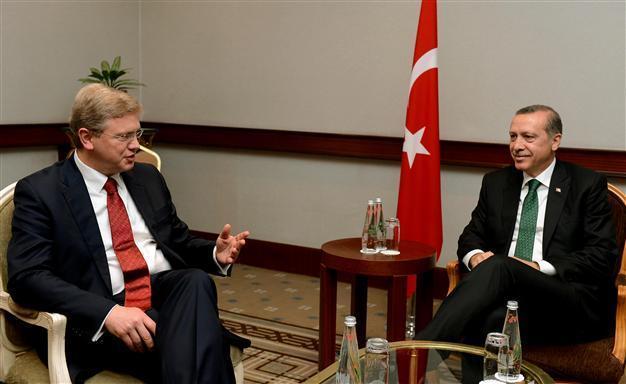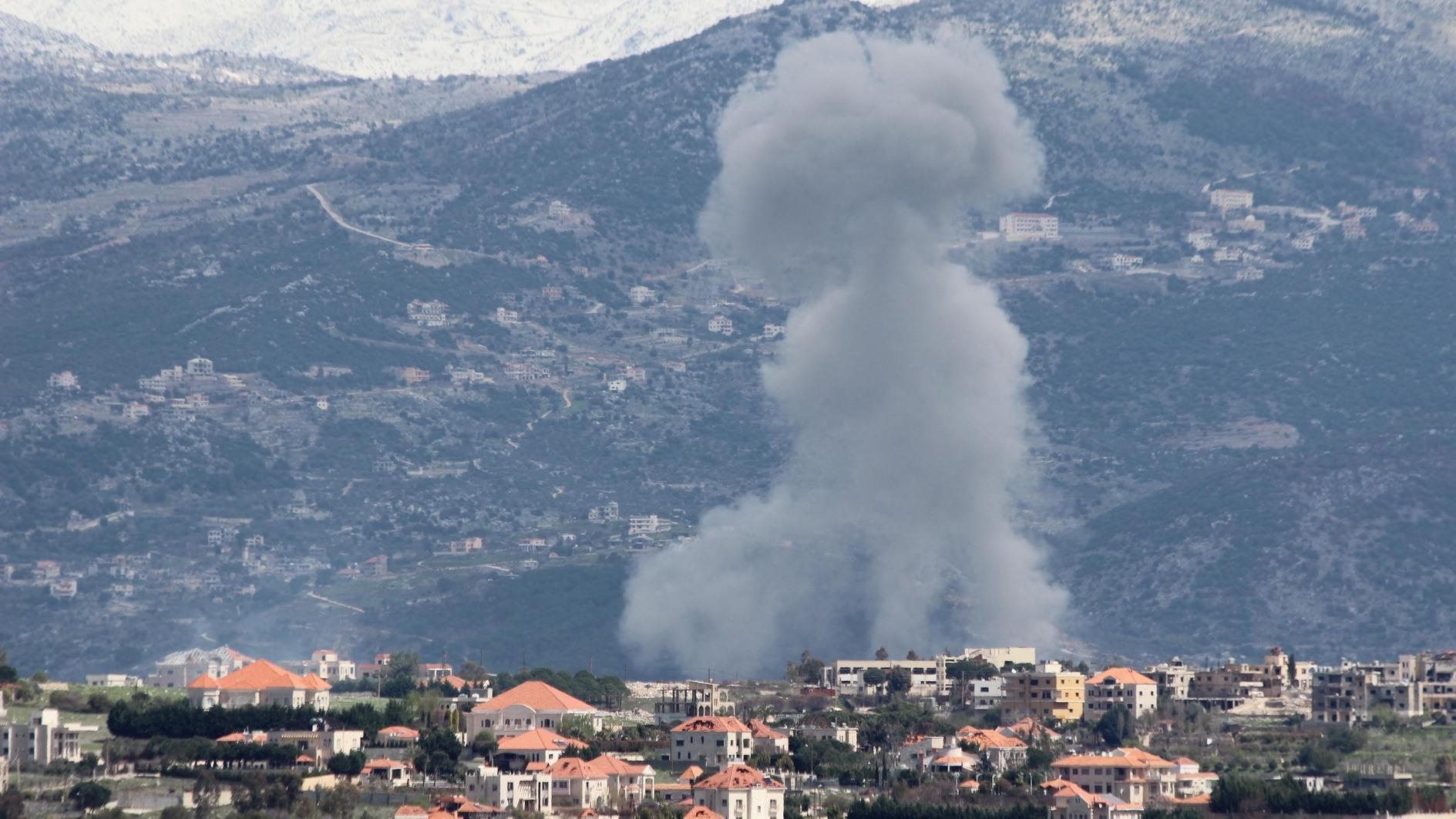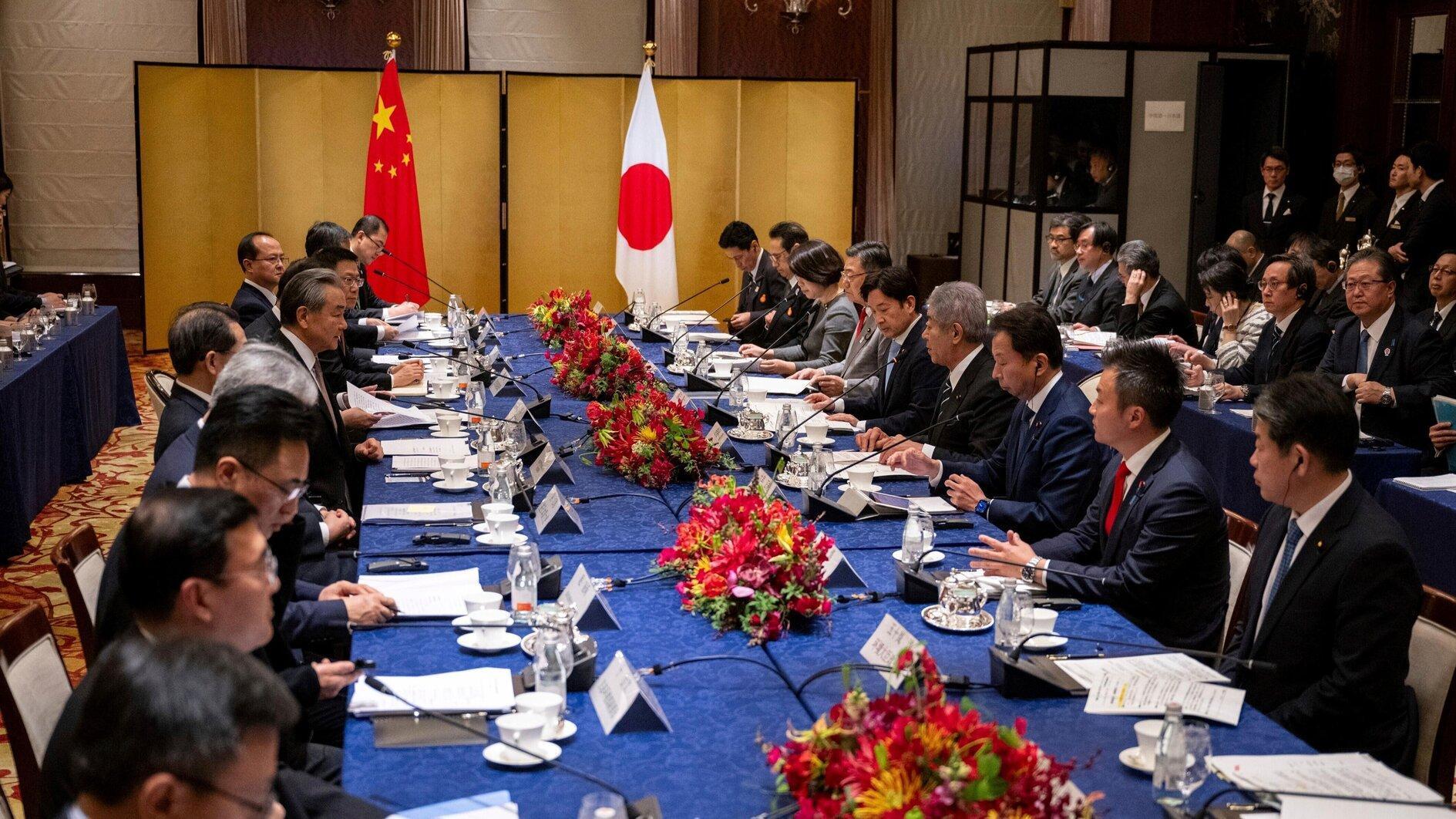Turkish PM Erdoğan and EU Commissioner Füle in crossfire over Gezi Park protests
ISTANBUL

Turkish PM Erdoğan and EU Commissioner Stefan Füle held a brief meeting following the Ministry of European Affairs’ Istanbul conference June 7. AA photo
The European Union was at fault in supporting Gezi Park protests, Turkish Prime Minister Recep Tayyip Erdoğan said June 7, accusing “a certain part of those at the Gezi protests” of wanting to hamper the ongoing Kurdish peace process.Speaking at the Ministry of European Affairs’ Istanbul conference with a large group of foreign guests, Erdoğan also argued that union members were discriminating against Turkey, and Turkish people within their borders, regarding the country’s accession process to the EU.
“Why is Turkey, despite all these improvements, forced to face obstacles put by the union? Why are standards being invented for Turkey, which have not been enforced on candidate countries ever before? The EU forgets every promise, every signature under every promise. Well, Turkey is not a country that can be forgotten, or kept waiting at the door,” Erdoğan said.
He said nearly all the European leaders had been replaced over the course of time, leaving only him, adding that the hopes of the Turkish nation for accession had weakened substantially.
Turkey has done all it has to do with regards to reforms, reaching a level “not only capable of fulfilling the requirements of opening chapters, but also of closing them,” Erdoğan said.
Füle slams government’s stance against protests
The European Union’s Commissioner for enlargement, Stefan Füle, did not temper his criticism against the brutal police crackdown against the demonstrators who filled Gezi Park to prevent its demolition and protesters that took to the streets to denounce the violent repression.
“Before we talk about the future, we cannot ignore the present,” Füle said, calling on the government to show the “same wisdom” in the events that unfolded in Istanbul and other major cities as the will that it showed for launching a peace process in order to end the three-decade-long Kurdish conflict.
The demonstrations “constituted a legitimate way of expressing the needs” of a section of the society that felt underrepresented in the parliamentary majority, Füle said, adding that the fourth judicial package was a significant step forward, but it was the implementation that matters, as recent events showed.
“Last year when we met in Ankara you called on the European Union to not ‘give up on its values.’ These were wise words,” Füle said, addressing the Turkish prime minister. “Today, I am standing here in front of you and calling on Turkey to not ‘give up on its values’ on fundamental rights and freedoms. For our part, we don’t have any intention to give up on Turkey’s accession to the EU,” Füle said.
The European Union had expressed several times its concerns about the police intervention against protesters while the Turkish prime minister had accused some terrorist groups of provoking some of the violent events.
The protests were sparked on May 28 over attempts to demolish the trees in Gezi Park, in the heart of Istanbul’s entertainment district, in order to replace it with a project recreating the Ottoman Artillery Barracks that used to stand on the site. The project involved converting the building into a shopping complex and Erdoğan had insistently refused to back down, saying that the “decision had been made.”
















